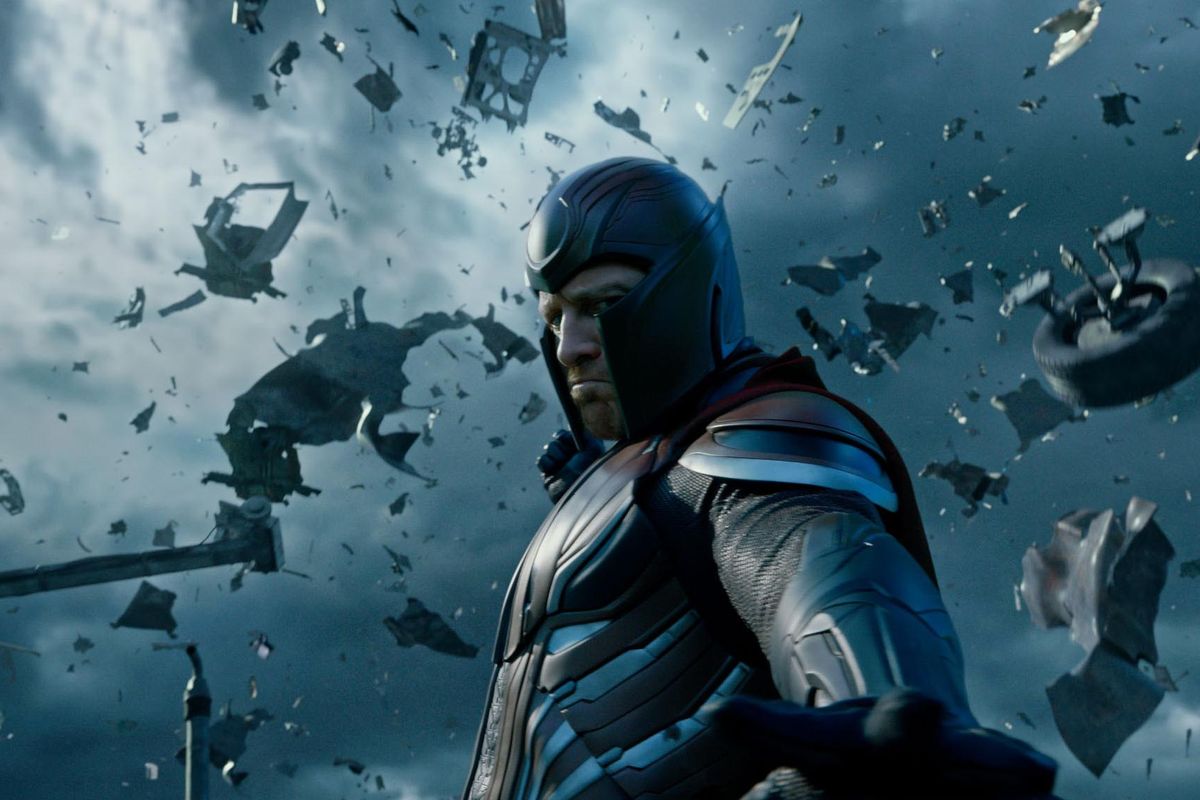Movie review: ‘X-Men’ impressive, but lacks originality

By now it’s pretty obvious how the world’s screwed-up political scene is affecting Hollywood. The same kind of black-white, up-down, in-out, you’re-wrong-you-moron polarization that can be seen everywhere from the Spokane Valley to the European Union has now enveloped Hollywood.
Nowhere, though, is that kind of polarization on more strident display than in the most recent trio of superhero blockbuster movies.
You may already have seen “Batman v Superman: Dawn of Justice” and “Captain America: Civil War.” And “X-Men: Apocalypse” opens in Spokane this week. In addition to an adoring affection for the sorely misunderstood colon, the three films share common plot scenarios: characters exhibiting diametrically opposed points of view, internecine acts of betrayal in response to these differing opinions, and all the subsequent action conveyed with ample amounts of CGI violence.
Take the latest addition to the “X-Men” franchise, a Bryan Singer film set in 1983. Continually referring to the events that occurred in director Matthew Vaughn’s 2011 film “X-Men: First Class,” this latest “X-Men” adventure immediately shows the problem that many viewers will have: If you haven’t seen the other films in the series, you might not know what’s going on, what with the twisted-yet-linked plots and the too-numerous, shape-shifting characters (especially as, over the years, they are played by ever-changing actors).
The MacGuffin this time is En Sabah Nur (or Apocalypse), a mutant from 3600 BCE who was in the process of stealing the powers of another mutant when, betrayed by his human guards, he ends up buried under tons of pyramid stone. Set free some five millennia later, he begins recruiting talented retainers – he needs four, a la The Four Horsemen of the Apocalypse – to help him fulfill his original plan to take over the world.
Meanwhile, still reeling from the events that took place in “X-Men: First Class” – a film set around the real-life Cuban Missile Crisis of 1962 – the individual mutants we are familiar with are still struggling to adapt to a world in which they are misunderstood and mostly mistrusted.
Magneto (Michael Fassbender) lives as an ordinary man, husband and father in Poland. Mystique (Jennifer Lawrence) roams the world, attempting to identify and save mutants such as Nightcrawler (Kodi Smit-McPhee). Professor Charles Xavier (James McAvoy) continues to build the school that he hopes will not only be a training center for mutants, but will be, eventually, a place where mutants and humans can learn to live together in peace.
Fat chance. Because when Magneto suffers yet another domestic tragedy, one that magnifies (so to speak) the inherent pain he feels from being a child Holocaust survivor, he lets himself get recruited by Apocalypse (along with three others, including Psylocke, played by the barely dressed Olivia Munn). And so the plot is set in motion: another civil war, with Professor Xavier and his followers on one side, Apocalypse and his acolytes on the other.
Mystique, formerly a rogue warrior and friend of Magneto, is recast as someone not so much a goody-goody as someone whose main goal seems to be to save her former mentor from himself.
Amid all this personal and emotional drama, the CGI-constructed action is impressive. Whether we’re talking about Apocalypse masterminding a simultaneous launch of all the world’s nuclear weapons (which then float harmlessly in space) or the obligatory climactic fight sequence between mutants with diverse powers, the effects are as good as anything either in “Batman v Superman” or “Captain America.”
Yet my favorite scene comes right in the middle of the 144-minute running time, when one of the more comic characters, Quicksilver (Evan Peters) conducts a rescue mission courtesy of his mutant power, super speed. And the specifics of that rescue, which I won’t give away, emphasize the point I have already made: the lack of originality being displayed in all of today’s superhero movies. As clever, and refreshing from all the forced melodrama, as the sequence is, it is basically the same trick that director Singer used in 2014’s “X-Men: Days of Future Past” (which was my favorite part of that film as well).
“X-Men: Apocalypse” will no doubt make millions. Maybe, when worldwide box-office receipts are included, that total will rise to make than a billion. So, in a sense, such a film is critic-proof.
And the fact is that with trained actors such as Fassbender and McAvoy, paired alongside the Oscar-winner Lawrence and the talented (and ubiquitous) Oscar Isaac (under tons of makeup as Apocalypse), “X-Men: Apocalypse” does achieve a few moments of real emotion.
Still, Singer and the guys at Marvel Comics would do well to remember: This all started as a comic-book franchise, guys. Not Shakespeare.
Not even our current comedy of a presidential campaign.